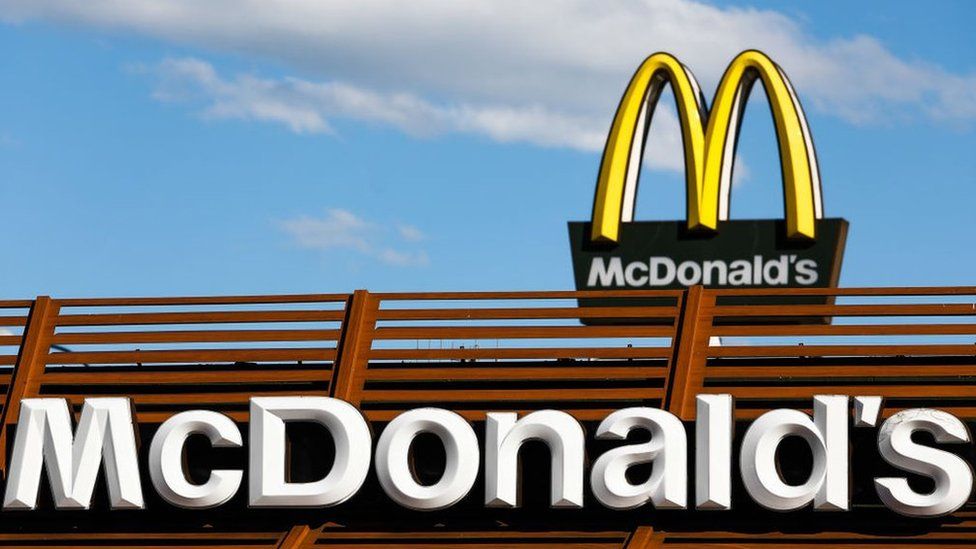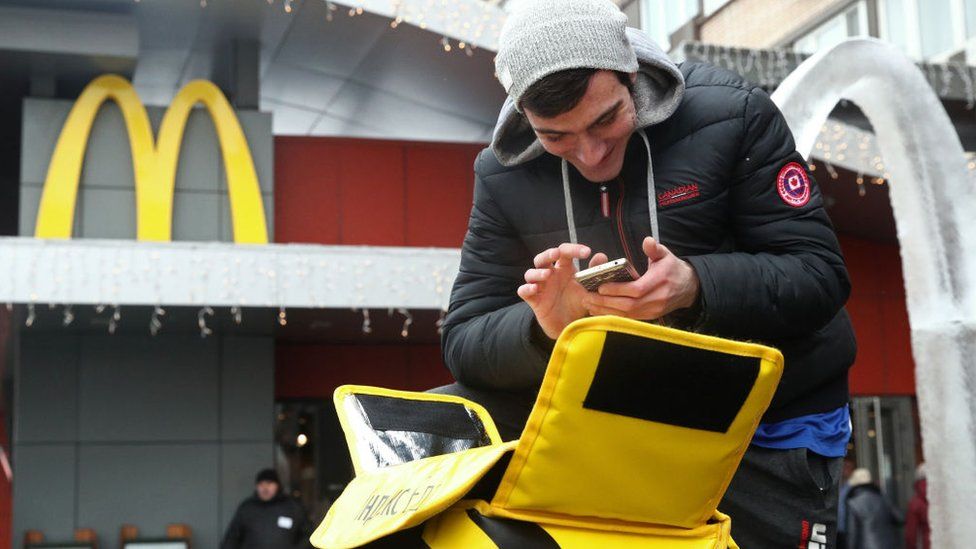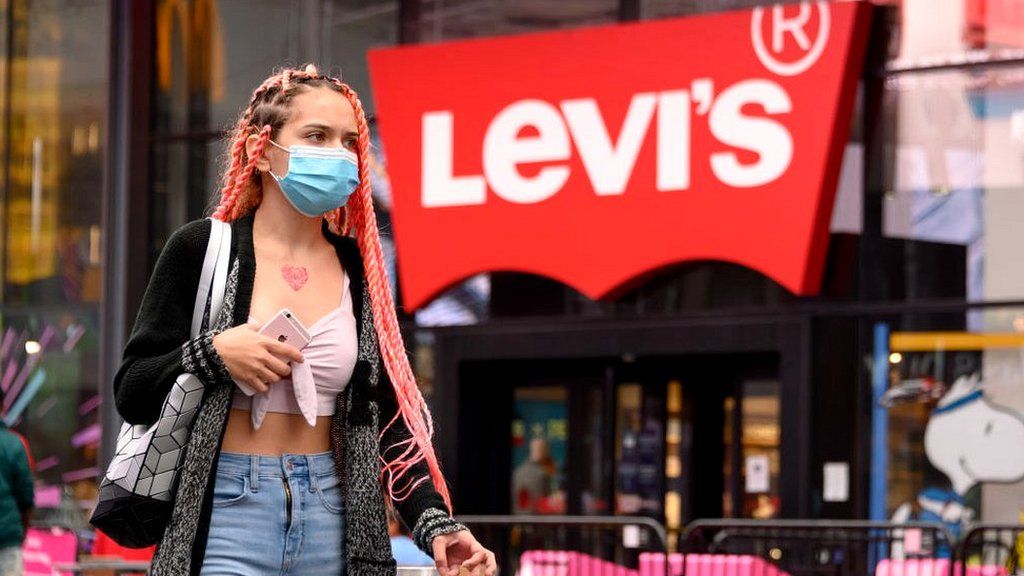Food and drink giants have been criticised on social media for failing to speak out on Ukraine’s invasion.

Image source, Getty Images
Pressure is growing on Western food and drink giants to pull out of Russia due to the invasion of Ukraine.
McDonald’s and Coca-Cola have been criticised on social media for failing to speak out about the attacks and continuing to operate in the country.
Well-known firms including Netflix and Levi’s have already suspended sales or stopped providing services in Russia.
McDonald’s and Coca-Cola have not responded to the BBC’s request for comment.
#BoycottMcDonalds and #BoycottCocaCola were trending on Twitter on Monday and over the weekend respectively.
Dragon’s Den investor Deborah Meaden also spoke out on social media against the fizzy drinks company urging people to stop drinking Coca-Cola.
Can you stop drinking Coca Cola please. They are refusing to withdraw from Russia. Let’s show them some people power.
— Deborah Meaden 🇺🇦 (@DeborahMeaden)
The criticism comes amid calls for other well-known Western firms such as KFC, Pepsi and Starbucks and Burger King to close their outlets and stop sales in Russia.
However, most firms have stayed silent on the issue with KFC, Pepsi, Starbucks and Burger King also declining to respond to the BBC’s requests for comment.
Big presence
Many of the firms the BBC has contacted have a large number of stores in the country.
Fast food chain KFC reached a milestone of 1,000 restaurants in Russia last year. In 2021, it said that it aims to open about 100 restaurants annually there.
In recently-published information on its website, McDonald’s revealed that it has 847 stores in Russia. The company also owns the majority of these outlets, whereas across the rest of the world, most are typically operated by franchisees.
Both McDonald’s and Pepsi, who have had a presence in Russia for decades, have also been singled out by the boss of New York state’s pension fund.

Image source, Getty Images
Thomas DiNapoli, comptroller of the New York state common retirement fund, wrote letters to the companies, according to Reuters reports, urging them to review their businesses in Russia because they face “significant and growing legal, compliance, operational, human rights and personnel, and reputational risks”.
Often, franchise owners will be able to take the decision as to whether or not to shut chains down, depending on terms of agreements they might have with big food chains like KFC or Starbucks.
In a recent statement, Kevin Johnson, the boss of Starbucks, described attacks on Ukraine as “unprovoked” and “unjust”.
But most of its sites in Russia remain open, according to its website. Most of these franchises are run by the Kuwait-based Alshaya Group.
‘Ethical compass’
Dr Ian Peters, director of the Institute for Business Ethics, told BBC News: “This is not a time to sit on the fence.
“The world is likely to judge companies by what they do in such circumstances, and ethical judgement will be as important as complying with any government-led regulations and sanctions.”
He said that most firms would have what they refer to as an “ethical compass” they use to make big decisions.
“We would advise firms in such circumstances always to look at the bigger picture and seek to do the right thing, putting the wider interest above short-term profit,” he added.
He cited important ethical dilemmas that might come up for companies when considering to suspend operations in Russia too: What duty of care do these companies hold to employees on the ground? Is it fair to deprive Russian citizens of basic goods?
Professor of business ethics at Henley Business School, Kleio Akrivou, suggests that these types of decisions might be more difficult to reach for food companies than, say, consulting firms.
“When it comes to sanctions which deprive the Russian population of its basic goods and dignity, firms may need to approach the situation more thoughtfully, with an appeal to practical reason.”
She said now is the time for fast food giants to balance how real people are affected by such moves, alongside any reputational risk.
-
- 6 hours ago

- 6 hours ago
